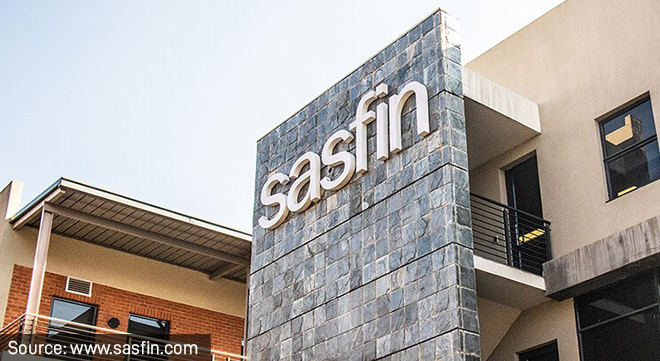The Prudential Authority (PA) has imposed an effective fine of R160.6 million on Sasfin Bank for alleged non-compliance by its discontinued foreign exchange business.
In a SENS announcement on Tuesday, Sasfin Holdings said the PA notified Sasfin Bank of the sanctions on 1 August. The sanctions were imposed in terms of the Banks Act, the Financial Sector Regulation Act, and the Financial Intelligence Centre Act.
The total sanction was R209 692 132, of which R49 048 034 was suspended, resulting in an effective fine of R160 644 103.
“These sanctions principally relate to allegations of historic non-compliance within Sasfin Bank’s discontinued foreign exchange business. Sasfin has and continues to work proactively and transparently with the relevant authorities and regulators.
“Sasfin has taken legal advice and is considering further representations which could result in a review or appeal of the sanctions in terms of the provisions of the relevant regulations,” the SENS announcement said.
In its annual statements to the end of June last year, Sasfin said it commissioned an audit firm to investigate allegations of financial misconduct relating to persons or entities that had been clients of Sasfin’s foreign exchange business unit going back to 2014.
The investigation found that a group of Sasfin employees in the foreign exchange business unit had colluded with the implicated clients to circumvent South Africa’s exchange control and anti-money laundering regulations, as well as the bank’s internal controls.
All the implicated employees have been dismissed, and criminal cases have been opened where appropriate, Sasfin said.
Michael Sassoon, the chief executive of Sasfin Holdings, said in the group’s 2023 integrated annual report that Sasfin had taken steps to bolster its compliance and control functions and was committed to the highest levels of integrity and business ethics.
“The impact of this syndicate has been felt deeply and personally by all Sasfin’s stakeholders and has strengthened our resolve to detect and prevent attempts at financial crime abuses which are plaguing our country. We have acted with urgency to enhance our operational systems, controls, and compliance functions systematically and comprehensively.”
In September 2022, the Daily Maverick published an article alleging that an investigation by the South African Revenue Service indicated that Sasfin Bank employees helped to launder money made from illicit tobacco sales. In March last year, an Al Jazeera report alleged that Sasfin staff, as well as those employed by two other banks, were involved in laundering money in exchange for bribes from an international gold-smuggling syndicate with ties to Zimbabwe.
The syndicate’s circumvention of the country’s exchange control regulations has also resulted in Sasfin Bank facing a massive claim from the South African Revenue Service (SARS).
In February this year, Sasfin Holdings informed shareholders that SARS had issued the bank with a summons for almost R4.9 billion in damages, plus interest and costs.
The summons, which the bank received in January, arose from SARS’s alleged inability to collect income tax, value-added tax, and penalties owed by the bank’s former foreign exchange clients.
SARS alleged the implicated taxpayers colluded with the former Sasfin employees to circumvent the foreign exchange and anti-money laundering regulations, to transfer money offshore in a manner that made the expatriated funds hard to trace, jeopardising SARS’s ability to collect tax.
Sasfin said it will defend the claim, although it believes the claim has no merit and little chance of success.
Sasfin also said on Tuesday that it received regulatory approval on 1 August for the sale of its capital equipment finance and commercial property finance businesses to African Bank for about R3.25bn.
In July, Sasfin said it planned to delist from the JSE after it offered minority shareholders nearly R1bn to buy them out and take the company private.



